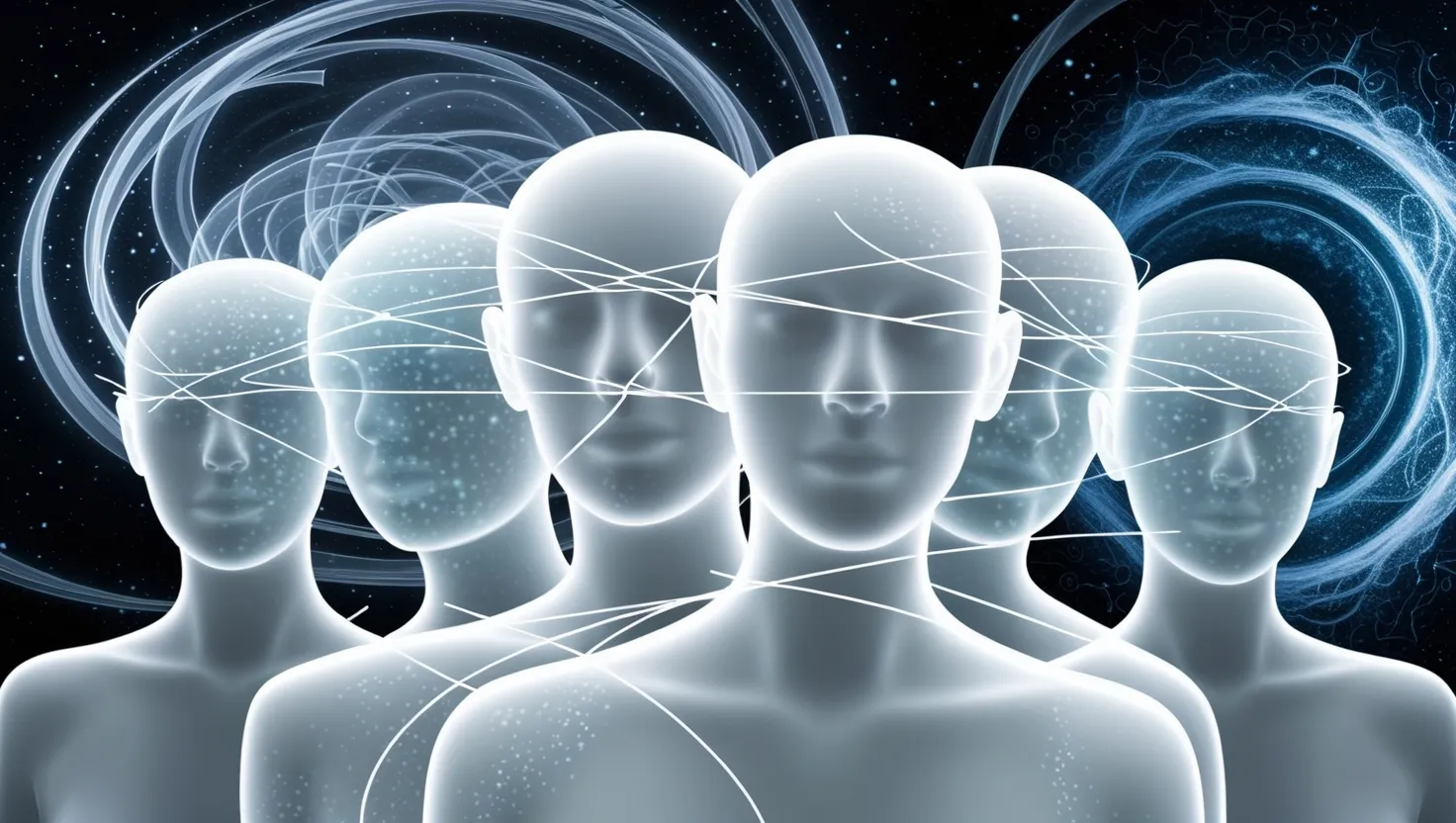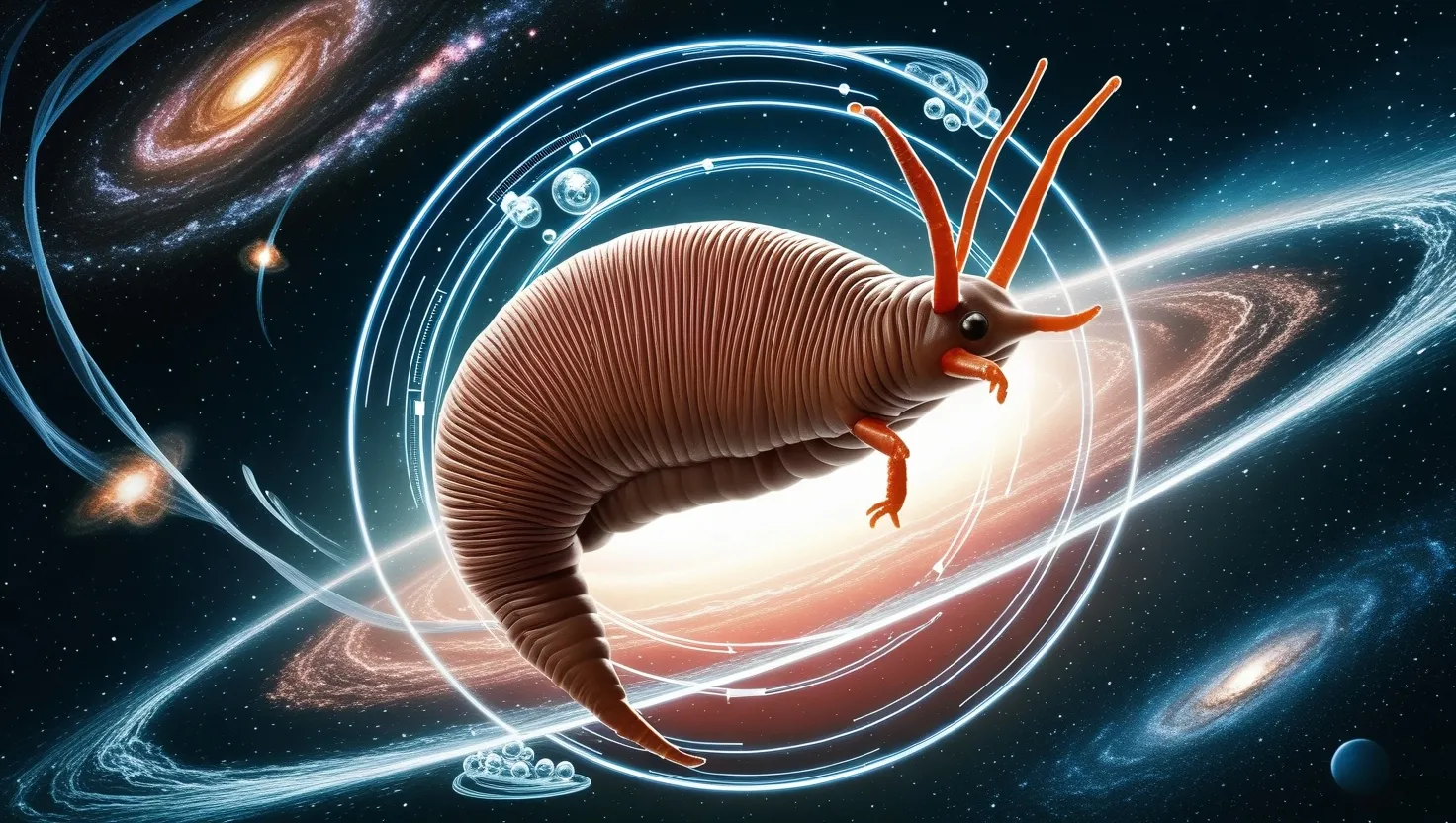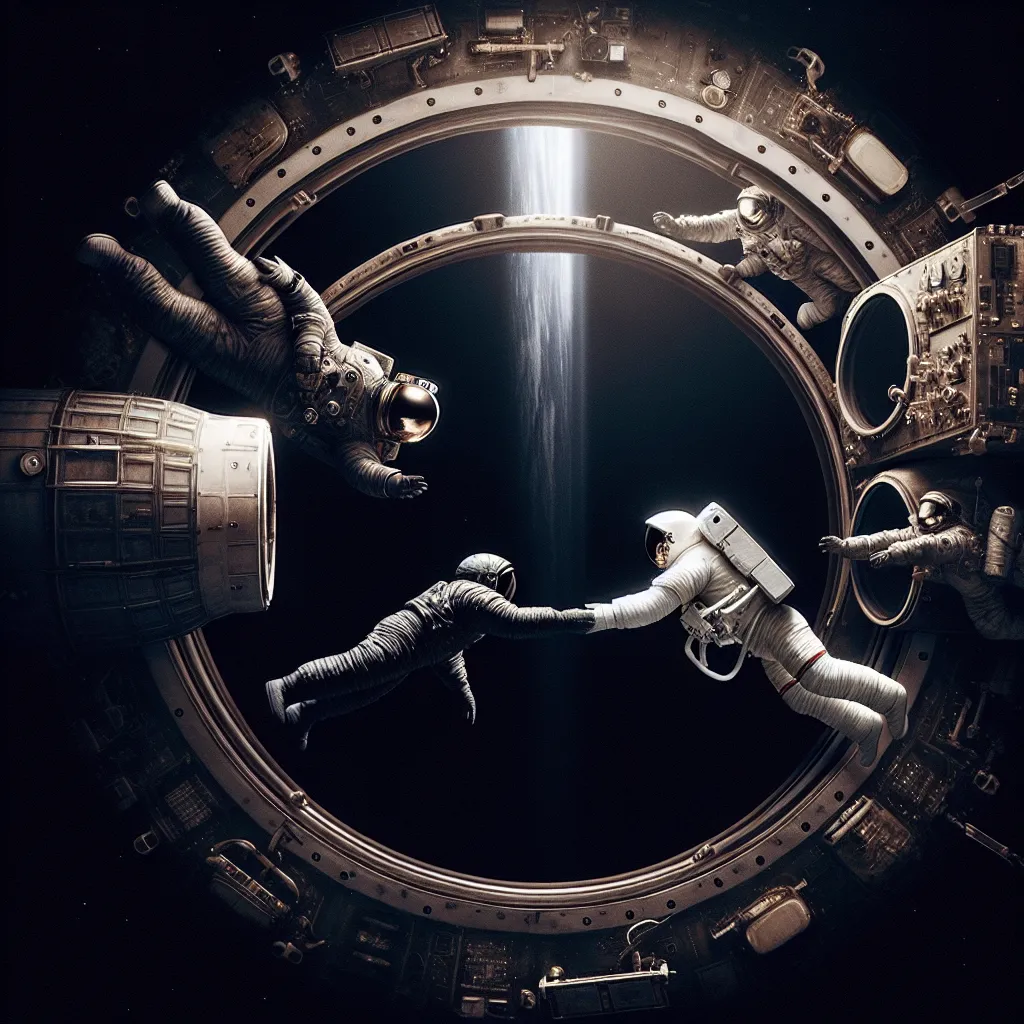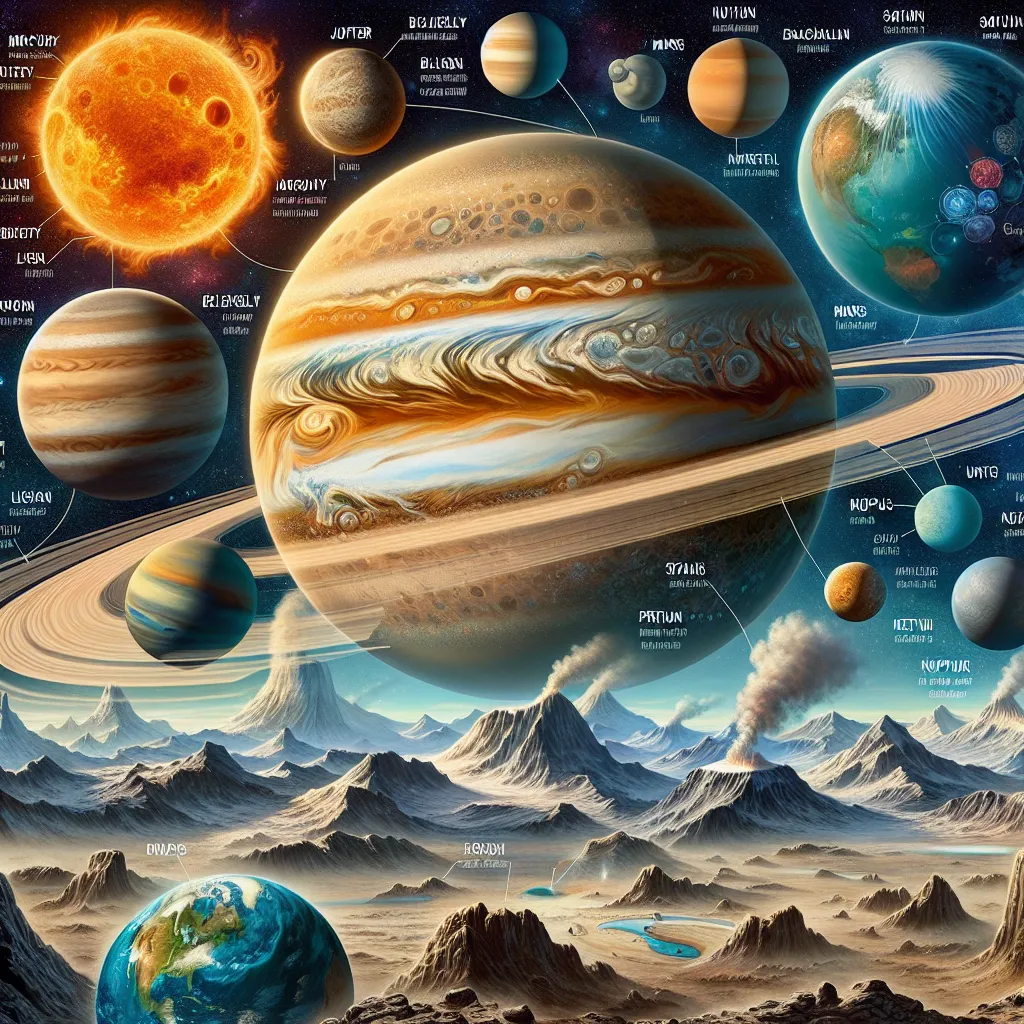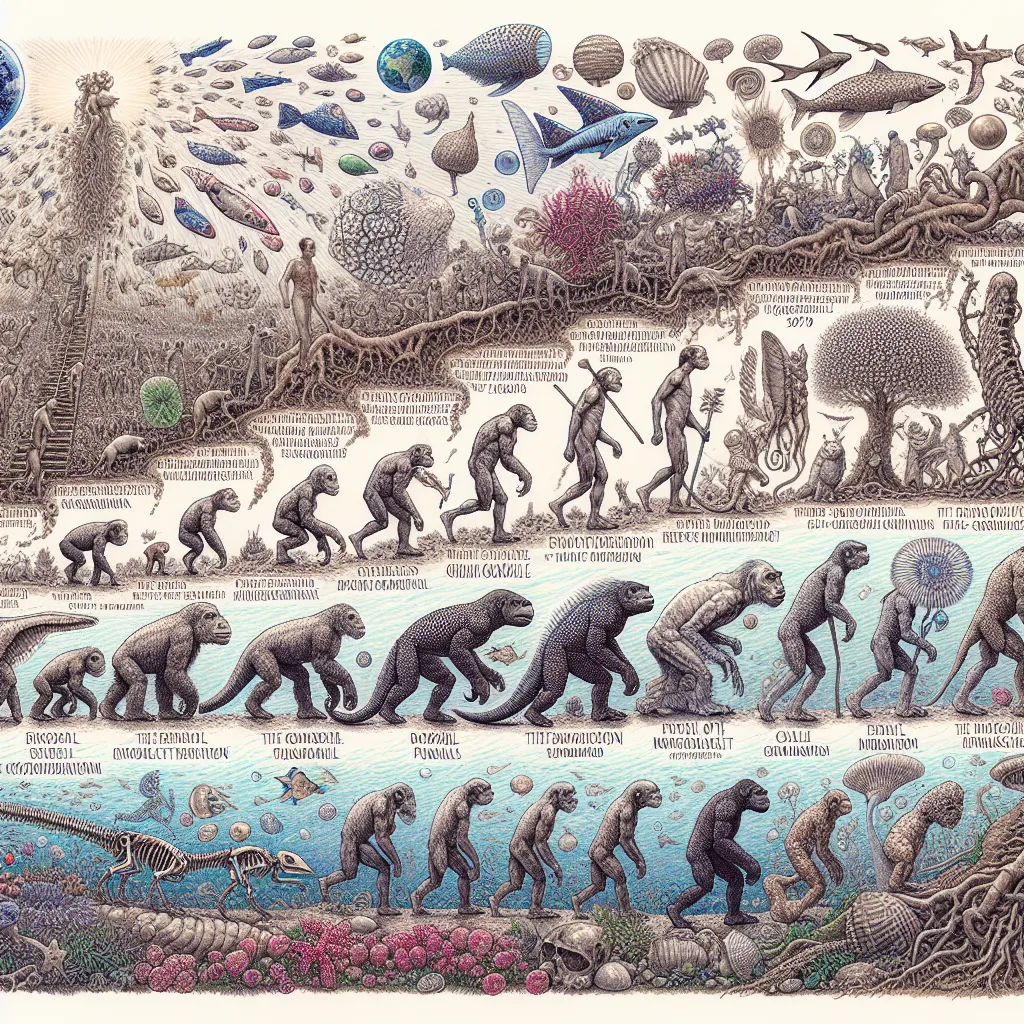Imagine a world where every decision you make is not just a product of your own thoughts, but also influenced by versions of yourself from other universes. This mind-bending concept, rooted in the mysteries of quantum mechanics, suggests that our choices might be subtly guided by our parallel selves through a phenomenon known as quantum entanglement.
Quantum entanglement is a well-documented phenomenon where particles become connected in such a way that the state of one particle is instantly affected by the state of the other, regardless of the distance between them. This effect has been demonstrated in numerous experiments, including those involving photons and even larger entities like atoms and molecules.
Now, let’s take this idea a step further. What if this entanglement is not limited to particles, but can also occur between different versions of ourselves across the multiverse? The multiverse hypothesis, while still speculative, suggests that every time a decision is made or an event occurs, the universe splits into multiple parallel universes, each with a different outcome.
If we consider the possibility that these parallel universes are not entirely separate but can influence each other through some form of quantum connection, it opens up a fascinating and somewhat unsettling perspective on our decision-making process. It suggests that the hunches we feel, the sudden changes of heart, or the inexplicable bursts of insight might not be just our imagination or intuition, but actual influences from our parallel selves.
This idea is not entirely new and has been explored in various forms of theoretical physics and philosophical discussions. For instance, Wheeler’s delayed-choice experiment, which involves altering the experimental setup after a photon has already passed through it, shows that the behavior of particles can be influenced by future actions. This experiment highlights the strange and non-intuitive nature of quantum mechanics, where the act of observation itself can change the outcome.
In a similar vein, the concept of quantum coherence and its limitations, as demonstrated in recent experiments, shows that traditional wave-particle duality can be manipulated. This means that the fundamental nature of particles can be altered based on how we choose to observe them, further blurring the lines between the observer and the observed.
But what if we could tap into this quantum connection consciously? Could we access the knowledge and experiences of our parallel selves to make better decisions? This is where the theory becomes both intriguing and challenging. If we assume that our parallel selves are making different choices and experiencing different outcomes, then theoretically, we could learn from their experiences.
However, this raises a host of questions about free will and decision-making. If our choices are influenced by our parallel selves, do we really have control over our decisions? Or are we just part of a larger, interconnected web of choices made across the multiverse?
The concept of nonlocality in quantum mechanics, where events in one part of the universe can instantly affect events in another part, no matter the distance, adds another layer of complexity to this idea. It suggests that the influence from our parallel selves could be instantaneous and not bound by the constraints of space and time.
While this theory is highly speculative and currently lacks empirical evidence, it does spark interesting discussions about the nature of reality and our place within it. It challenges our traditional understanding of free will and suggests that our decisions might be part of a much larger, interconnected process.
Imagine being able to tap into the collective wisdom of countless versions of yourself, each having made different choices and experienced different outcomes. It’s a tantalizing prospect that could potentially revolutionize how we approach decision-making. However, it also raises ethical and philosophical questions about the autonomy of our choices and the potential consequences of such interconnectedness.
In practical terms, if we were to develop a way to consciously access the knowledge of our parallel selves, it could have profound implications for fields like science, technology, and even personal development. We could potentially learn from the successes and failures of our parallel selves, avoiding pitfalls and making more informed decisions.
However, this is still firmly in the realm of science fiction for now. The technical and theoretical hurdles to overcome are significant. For instance, the protection-operation dilemma in quantum computing, where qubits must be isolated to prevent information loss but also need to interact to perform operations, highlights the challenges in maintaining quantum coherence and controlling quantum systems.
Despite these challenges, the idea of tapping into our parallel selves through quantum entanglement remains a captivating one. It invites us to consider the possibility that we are not isolated individuals but part of a vast, interconnected network of selves across the multiverse.
In conclusion, the theory that our decisions might be influenced by versions of ourselves from parallel universes is a mind-bending concept that challenges our understanding of free will and decision-making. While it is highly speculative and lacks concrete evidence, it opens up fascinating avenues for exploration and speculation. Whether or not we can ever tap into this quantum connection consciously, the idea itself is a powerful reminder of the mysteries and complexities of the universe we inhabit. So, the next time you feel that inexplicable hunch or sudden change of heart, you might just wonder if it’s more than just your imagination – it might be your parallel self guiding you from another universe.
